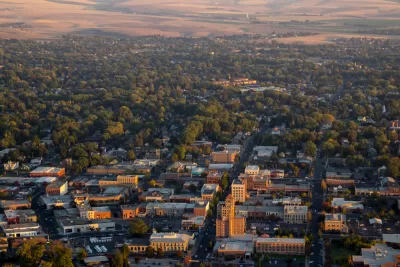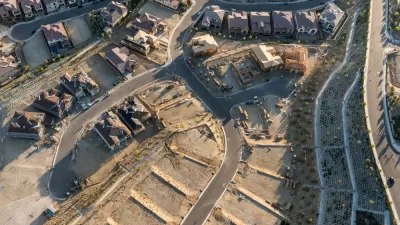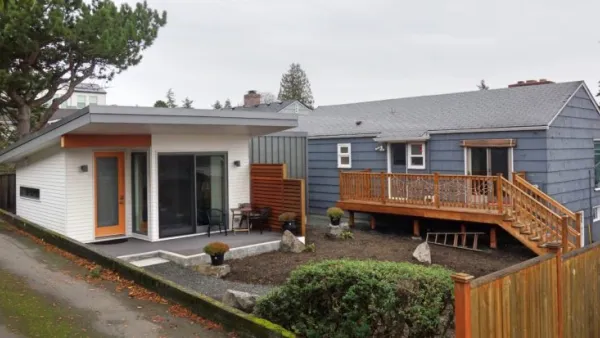The Washington city reformed its zoning code to support more multifamily development and a diversity of housing types to meet the needs of its growing population.

With their town surrounded by valuable agricultural land, officials in Walla Walla, Washington are particularly attuned to the need to rein in sprawl and encourage smart growth as the population grows. As Patrick Sisson explains in Planning Magazine, when it came time to update the city’s comprehensive plan, the city’s planners worked to reform and streamline complicated, outdated zoning codes and support more density and multifamily development.
“The answer was Neighborhood Residential (RN), a near-universal residential zoning designation that allows builders to go as dense as 75 units per acre, given that they still meet existing standards like landscaping, height, setbacks, parking, and lot coverage.” The city also updated regulations for accessory dwelling units (ADUs), eliminating owner-occupied restrictions and raising the size limit.
Sisson’s article details the changes, the process of getting them approved, and the positive reactions from many residents and builders. While Sisson admits that “So far, the numbers aren't showing a dramatic change,” due to the pandemic, there is some progress, and “developers have begun investing in new types of projects, including apartment complexes and conversions of motels into affordable housing.” According to Sisson, the city is also considering expanding a tax incentive for multifamily housing and creating a community land trust.
FULL STORY: Zoning Reform Creates New Model for Smart Growth in Walla Walla, Washington

Planetizen Federal Action Tracker
A weekly monitor of how Trump’s orders and actions are impacting planners and planning in America.

Congressman Proposes Bill to Rename DC Metro “Trump Train”
The Make Autorail Great Again Act would withhold federal funding to the system until the Washington Metropolitan Area Transit Authority (WMATA), rebrands as the Washington Metropolitan Authority for Greater Access (WMAGA).

The Simple Legislative Tool Transforming Vacant Downtowns
In California, Michigan and Georgia, an easy win is bringing dollars — and delight — back to city centers.

The States Losing Rural Delivery Rooms at an Alarming Pace
In some states, as few as 9% of rural hospitals still deliver babies. As a result, rising pre-term births, no adequate pre-term care and "harrowing" close calls are a growing reality.

The Small South Asian Republic Going all in on EVs
Thanks to one simple policy change less than five years ago, 65% of new cars in this Himalayan country are now electric.

DC Backpedals on Bike Lane Protection, Swaps Barriers for Paint
Citing aesthetic concerns, the city is removing the concrete barriers and flexposts that once separated Arizona Avenue cyclists from motor vehicles.
Urban Design for Planners 1: Software Tools
This six-course series explores essential urban design concepts using open source software and equips planners with the tools they need to participate fully in the urban design process.
Planning for Universal Design
Learn the tools for implementing Universal Design in planning regulations.
Smith Gee Studio
City of Charlotte
City of Camden Redevelopment Agency
City of Astoria
Transportation Research & Education Center (TREC) at Portland State University
US High Speed Rail Association
City of Camden Redevelopment Agency
Municipality of Princeton (NJ)




























